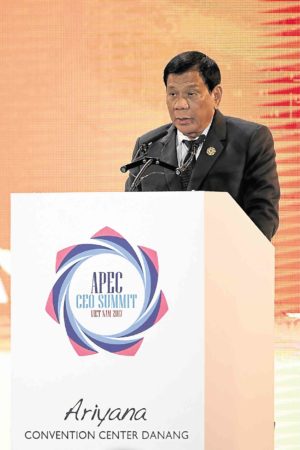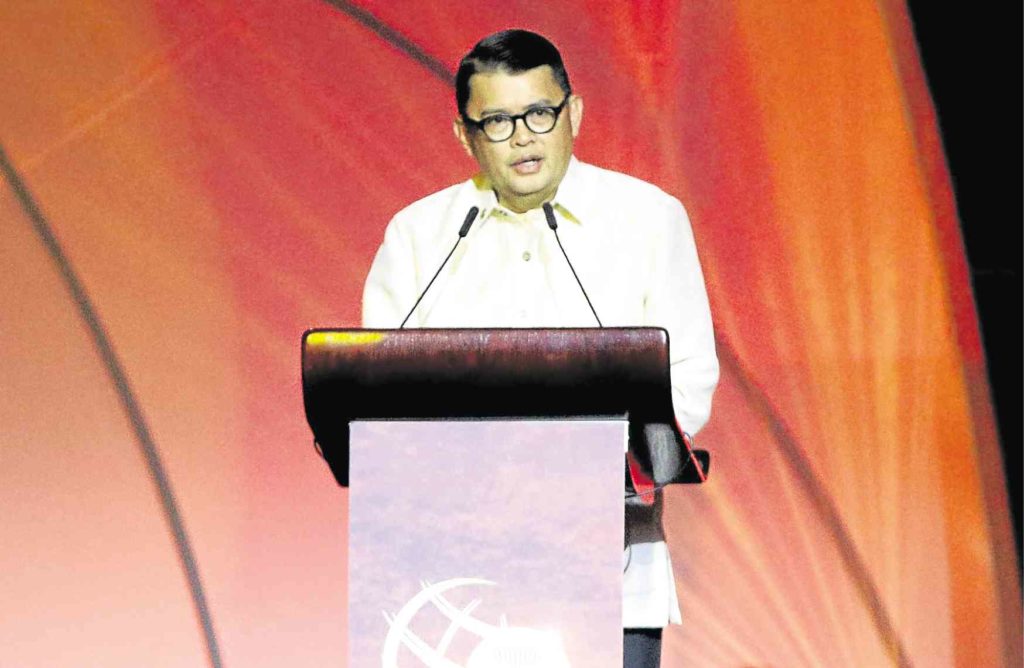Asean mentorship program gets off the ground

President Duterte speaks on the second day of the Apec CEO Summit ahead of the Asia-Pacific Economic Cooperation (Apec) leaders summit in Danang, Vietnam.
Today, before top government and business leaders, the Asean Business Advisory Council (Abac) will launch the Asean Mentorship for Entrepreneurs Network (Amen), an ambitious program to harness the time, resources and business solutions of successful entrepreneurs and corporations of the 10 member-nations to help scale up the operations of micro, small and medium enterprises across the region.
The launch of Amen, the flagship project of Abac this year, is anchored on the belief that mentorship is one of the three major ingredients that MSMEs need to achieve their profit goals and become an inextricable part of the global trade of goods and services, alongside access to funds and financial services and the local and global markets.
With the so-called 3Ms—money, market and mentorship—Abac chair Jose Ma. Concepcion III believes that the Philippines, and indeed the rest of the region, will be on track to achieving “prosperity for all.”
Prosperity for all is not just a theme, Concepcion stresses, but an action plan that springs from the firm belief that the MSMEs, which account for over 95 percent of registered enterprises in the Philippines, hold the key to achieving inclusive growth that has eluded administration after administration.
The launch of Amen today is the highlight of the three-day Asean Business and Investments Summit (Abis), which will gather some of the biggest names in government and the private sector of Asean.
The summit, which also kicks off today, will also feature discussions on Asean Build, Build, Build (Infrastructure Development), Unleashing Women Economic Power and Human Capital Development, Right Money and Open Markets, and Entrepreneurship in the Digital Economy—all deemed the priority of leaders in Asean.
But Concepcion is particularly excited about Amen as it will mark the first time that entrepreneurs and advocates in the region will be organized under the single purpose of mentorship. Given the different levels of development in the region, some will have more mentors than others, with the Philippines committing some 50 pioneer mentors.
Concepcion is optimistic that the mentor network will grow over time as more individuals and institutions buy into the idea that MSMEs need mentorship as much as capital and a ready market for their goods and services.
The vision is for not just people and products easily traveling across the Asean, but innovative business solutions, too.
After all, the challenges that MSMEs face in the Philippines are likely the same as those faced by MSMEs in the rest of Southeast Asia.
Thus, solutions that worked in one country should also work in another.
With Amen, Concepcion believes that Asean, which turns 50 this year under the chairmanship of the Philippines, will become even more relevant to the people in the region—not just a grouping in name, but more importantly, in deed.

Joey Concepcion during the Asean Business Awards 2017 at Solaire Grand Ballroom in Paranaque City.
